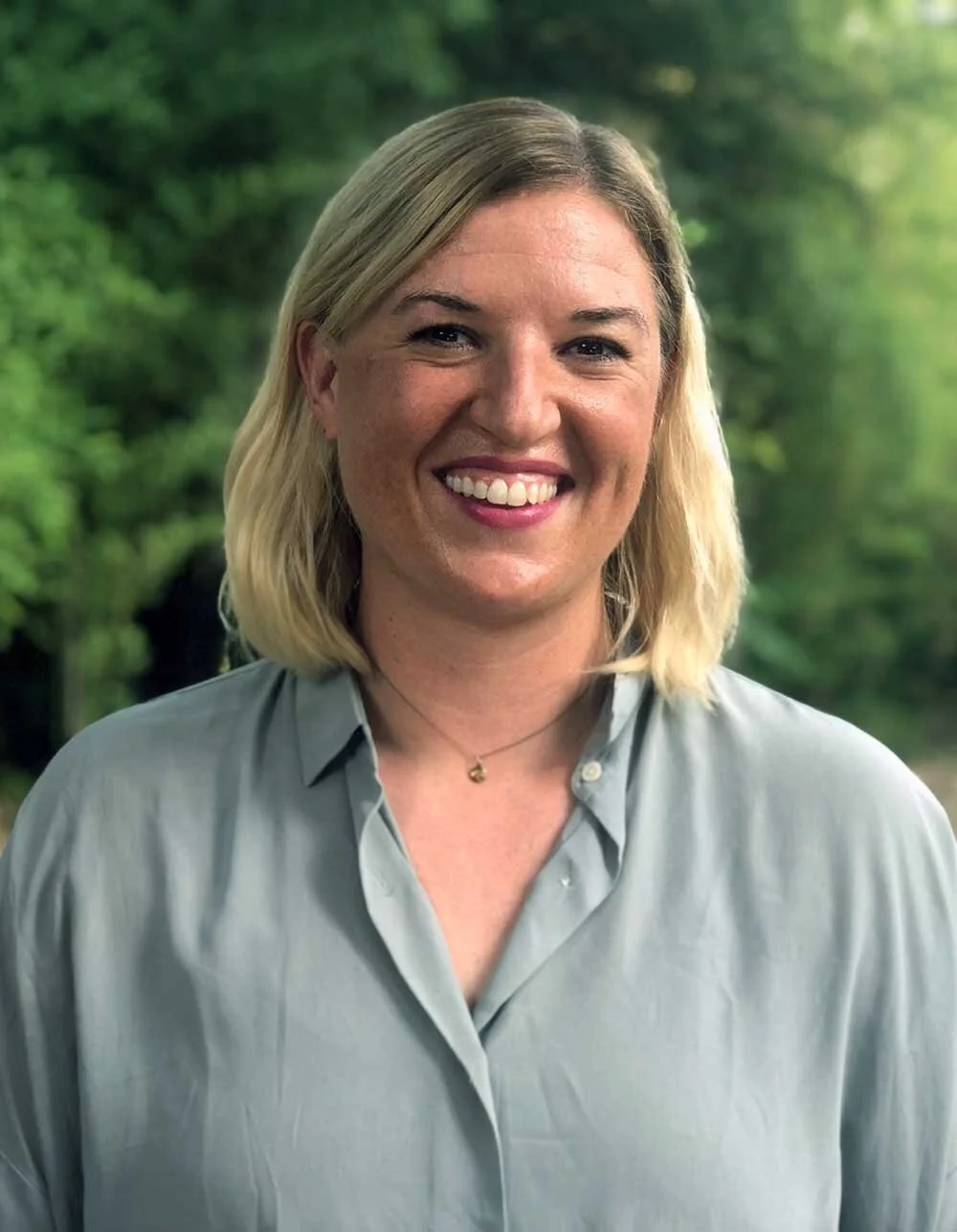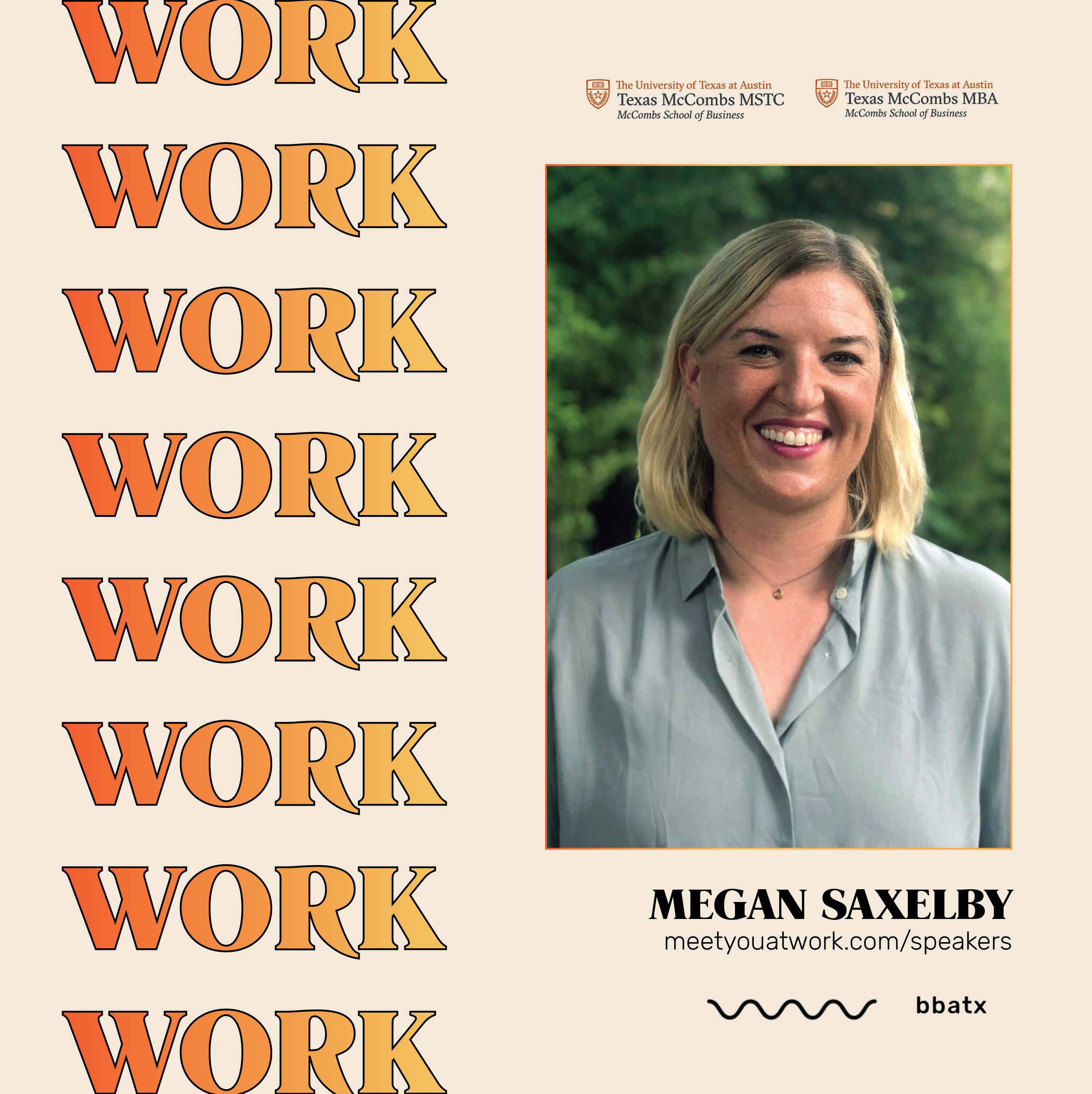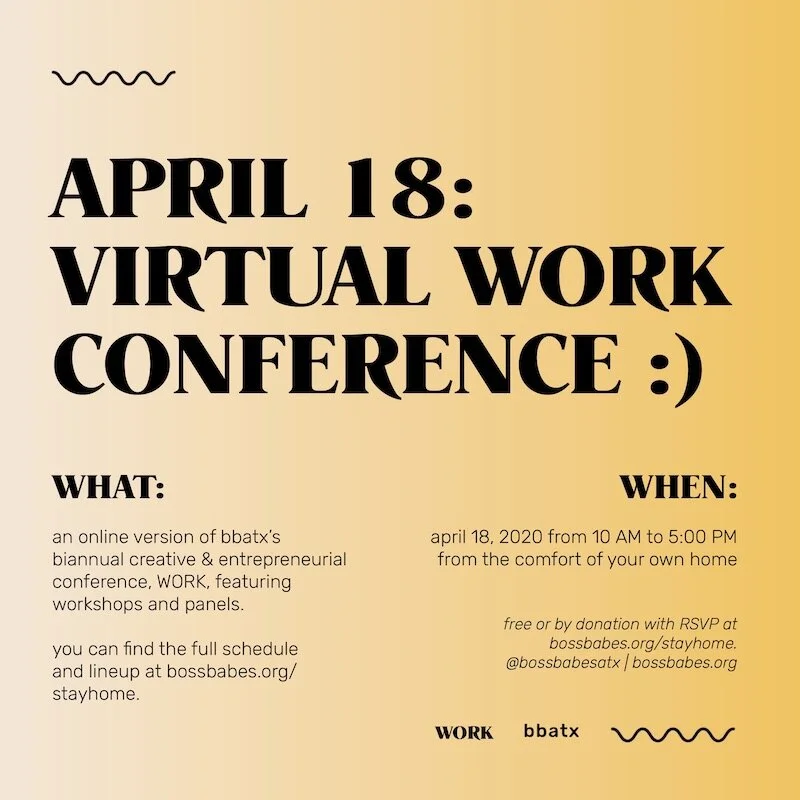On Dignity And Emotional Intelligence At Work: Megan Saxelby
Leading up to our Summer ‘20 iteration of WORK, we'll feature select interviews with some of our conference's speakers and thought leaders. In this interview, emotional intelligence facilitator Megan Saxelby discusses dignity versus respect, tools for self-compassion and new modes of collaboration.
WHO: MEGAN SAXELBY
Megan Saxelby is the co-founder of Wild Feelings, an app that helps leaders uplevel their emotional intelligence so they can build healthy work cultures, expand their understanding of emotions, and better equip individuals with the tools needed to thrive. Megan has over a decade of experience in education and specializes in emotional intelligence, prosocial critical thinking, and dignity. Her work combines research in neuroscience, conflict resolution, and social emotional learning.
1.) You're regularly described as an emotional intelligence expert. How did you get into this work?
I have a variety of learning disabilities, and from a really young age shame became a powerful force in my life. It’s funny—I can trace a pretty direct line from getting diagnosed in fourth grade, through high school and undergrad, and right to a divorce at 25. I spent a lot of my life hiding from vulnerability and being an aggressive, defensive person who was pretty tough on folks. It was just way easier to be harder on others than it was to actually be soft with myself.
I had been in therapy off and on a lot of my life, but it was the divorce that pushed me to really shift: I had to either admit I had made this huge mistake and be super vulnerable in a very public way, or I was going to double down on my defensive go-to, the I am always right bullshit and spend my life with the wrong partner. I chose vulnerability, got divorced and dove in head first into learning everything I could about brains, emotions and how socialization impacts who we feel we are allowed to become. I have spent decades since researching affective neuroscience, brain science, emotion science and guiding the development of emotional intelligence skills in individuals and communities.
When I became a middle school teacher I deepened my research work so I could help all these young folks I loved build a shortcut to deeper self-knowledge so they didn’t have to wait until they were 25 to be empowered. The narrative we construct around adolescence is destructive trash and hurts everyone. The social construction of adolescence coaches young people to think it’s going to be awful, encourages social aggression and rank-ism, and essentially tells them they are pains in the ass whose feelings and experiences don’t matter. We set them up to fail and struggle, then we abandon them and lament that they are rude, difficult and self-centered. We now know that 11 to 19 years old is one of the most crucial periods of brain development and moral identity development, yet we do not sit with young people in partnership and help them make sense of their identity or relationships.
I made it my mission to sit in partnership with young people, and all my research in affective neuroscience made this possible. And let me tell you, there is no better set of creative, innovative collaborators than young people. I spent the next 15 years teaching emotional intelligence and prosocial critical thinking in collaboration with young people to create empowered, prosocial humans.
When I was teaching kids, I was also moving up in my career and began leading the adults in our school community as well as supporting parents in their own emotional development. When I began working with adults, I realized that there was a massive skill gap in emotional intelligence, and while everyone I encountered wanted to better understand their brain and their emotions, it was too easy to get overwhelmed by all the resources out there and folks just don’t have time to do all the work I had already done. I realized that creating resources to spread dignity through emotional intelligence was my life’s purpose, not just for adolescents.
So, I am an educator, a translator and a tactician. I take massive, complex concepts and summarize them into concrete, usable tools to enhance well-being. Everyone wants to feel more secure in their worth and value, more in control of their life and relationships. I believe everyone deserves the opportunity to thrive—they just need the information and the skills. I teach emotional intelligence to transform you from a person lost in the wilderness to a confident field guide who can survive and thrive in any environment.
2.) Your work centers dignity—and the ways in which centering dignity can lead to more collaborative and equitable work environments. Where do you see dignity, or the lack thereof, in today's work environments?
I collaborate with a researcher out of Harvard named Dr. Donna Hicks who is a pioneer in operationalizing the idea of dignity. She spent decades working as an international conflict resolution expert, and all her work centers around the idea that the root of conflict is humans fearing humiliation and not being made to feel their humanity matters. She also does a lot of work differentiating between dignity and respect, because we frequently conflate the two. Dignity is non-negotiable—it is the inherent worth and value of every human. Respect on the other hand is negotiable, it is earned or lost through an individual’s or organization’s choices, actions, and behaviors.
Too many workplaces and organizations support oppression and anti-socialization because they rely on the concept of respect as a way to measure an employee’s value and contributions. Organizing work cultures around respect creates a system that is inherently rank-ist, meaning hierarchy and status are the driving motivators, as well as forces that police the value and participation of others. These kinds of systems deny the numerous factors that impact who is able to access spaces, whose work is seen as valuable and whose voices carry the most weight. It also creates environments where bias runs rampant, despite leaders’ attempts to support positive initiatives or create healthy culture. For example, if someone with more power than me makes a comment about my presence at work that is rooted in sexism, when I advocate for myself I am seen as disrespectful or disruptive. The lack of dignity as a foundational idea for work culture is what allows so many negative factors to dominate even the “healthiest” organizations.
Using dignity as the foundation for organizational culture is so disruptive primarily because it demands the elimination of rank-ism. Coming to every interaction, meeting, conflict, project, etc with the mindset, We all matter the same amount no matter what, is a radical shift in the way we have been taught to view human behavior, especially in the US. (Now, this does not mean an elimination of hierarchy, which is not an inherently destructive idea. Hierarchy can exist in prosocial organizations, but what workplaces fail to realize is the link between hierarchy and systemic oppression. Organizations often do not stop to think about the costs associated with denying dignity. A 2008 study by the CPP Global Human Capital report estimates that workplace conflict costs organizations close to $360 billion dollars in paid work hours.)
We are not born knowing how to honor individual and collective dignity, we have to choose to learn how. Learning about dignity and basing your organizations in it is transformative. It prioritizes emotional safety and depersonalizes conflict because it doesn’t weaponize shame or hierarchy. Dignity leads to more innovation, less absenteeism, less conflict and work cultures that are ultimately much more profitable, efficient and stable.
3.) We're about to release a study examining the *soft* characteristics of an environment that make it healthy for leaders. What environments have been best for your growth as a leader?
Environments that honor my dignity, that make me feel recognized, acknowledged and included. I have grown the most when I was in environments where collaboration, innovation and progress were supported by emotionally agile leaders.
4.) It'd be remiss to not acknowledge that work is incredibly different for all of us right now. What have you learned (and/or are trying to practice) as a result of the last few months' shifts?
I have learned that being an emotional intelligence expert doesn’t mean shit sometimes when it comes to managing your own emotions in a pandemic. I am currently seven months pregnant, and we found out about the baby about two weeks prior to COVID exploding. It has been a real wild ass ride that has been really lonely and scary at times, and makes me desperately miss the power of sharing physical space with other women.
I am practicing a ton of self-compassion as a result of the last few month’s shifts. Emotions are like tunnels—you have to go through them to manage them. Any attempt to compartmentalize, ignore or suppress them just means they hide around waiting to overflow when you’re vulnerable. Emotions demand attention and release, and self compassion is one of the most effective emotion mitigation strategies out there. I started a self-compassion journal, I practice self-compassionate self talk, and I require self-compassion breaks when my partner and I are in conflict. It has helped immensely.
5.) What practical and emotional tool would you recommend for people attending WORK?
Read or listen to Dr. Kristin Neff’s book Self-Compassion: The Proven Power of Being Kind to Yourself. Use her guided self-compassion meditations when you are having a hard time, preparing for something that is going to be tough, or just want to feel better. Folks can also sign up to be part of the closed beta for our new emotional intelligence app, Wild Feelings.
About WORK: WORK is a biannual conference, exploring ideas and approaches to creative, collaborative and entrepreneurial work. Hosting 300 guests every summer and winter, this biannual, one-day event's panels, workshops and speaker sessions touch on personal and professional development, marketing, wellness, business management and entrepreneurship. ✨Click here for more information.



